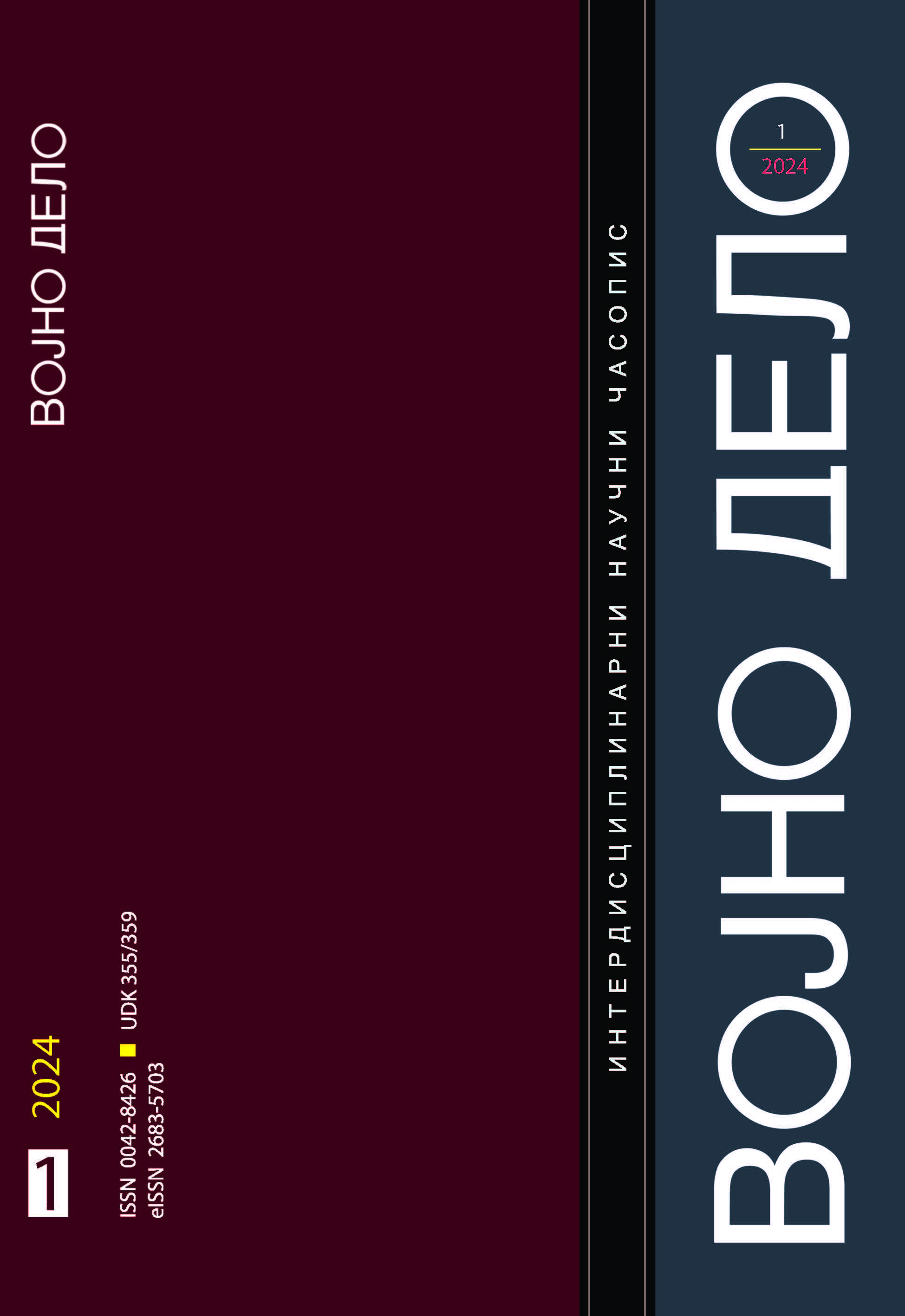MОДЕЛ ЗА ОДРЕЂИВАЊЕ КОМПЕТЕНЦИЈА ЕКСПЕРАТА У ОБЛАСТИ ВОЈНИХ НАУКА
MODEL FOR DETERMINING COMPETENCES OF EXPERTS IN THE FIELD OF MILITARY SCIENCE
Author(s): Duško Z. Tešić, Darko I. BožanićSubject(s): Security and defense, Military policy
Published by: Institut za strategijska istraživanja
Keywords: competences; experts; Мilitary Sciences; concordance; EWAA; FUCOM; CODAS; COPRAS; ARAS; CoCoSo
Summary/Abstract: The research on determining the competences of experts in the field of Military Sciences represents a significant contribution to the understanding of the specificity and importance of expert evaluation in that field. Considering the complexity and seriousness of research problems in this area, it is necessary to have a clearly defined model for assessing the competences of experts in order to ensure the relevance and quality of research results. First, it is important to emphasize that each scientific discipline requires its own approach, theoretical framework, language and methodology. In the context of Military Sciences, where researchers are often faced with complex questions and problems, it is crucial to develop a model that will adequately evaluate experts based on the specific requirements of this field. This paper deals with determining the competences of experts in Military Sciences investigates the influence of individual elements on their competence. A model was created to define the assessment of expert competence, and research was conducted to identify the impact of each individual element. Various subjective ranking methods were used, as well as multi-criteria decision-making methods such FUCOM (Full Consistency Method), CODAS (Combinative Distance based Assesment), COPRAS (Complex Proportional Assessment), ARAS (Additive Ratio. Assessment) and CoCoSo (Combined. Compromise Solution), as well as the EWAA (Einstein weighted arithmetic average) operator for aggregation of group decisions. To achieve agreement among experts, the Delphi method was applied, while the concordance coefficient was used to assess the degree of agreement between their ratings. All these steps enabled the formation of a valid model that was tested on an illustrative example, demonstrating its applicability in real life. This paper represents a significant contribution to the scientific field of Military Science, providing support to researchers who rely on expert judgment in their research. The developed model not only provides a model for evaluating the expertise of experts, but also opens the door for further research and improvement of methodology in this area. The precise determination of experts’ competencies contributes to a deeper understanding of military issues and to the improvement of security and efficiency in this key sector. The implementation of this model enables the systematic assessment of experts’ competencies, providing a comprehensive approach to the complexity and specificity of Military Sciences. This research not only contributes to the improvement of expert evaluation, but also to a wider understanding and improvement of the field of Military Sciences. Its application encourages a more complete and efficient approach to the challenges facing this field, thus contributing to its further development and improvement.
Journal: Vojno delo
- Issue Year: 2024
- Issue No: 1
- Page Range: 1-22
- Page Count: 22
- Language: Serbian

